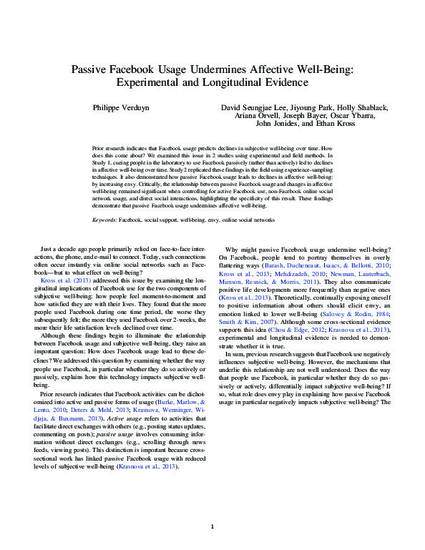
Article
Passive Facebook usage undermines affective wellbeing: Experimental and longitudinal evidence
Journal of Experimental Psychhology
(2015)
Abstract
Prior research indicates that Facebook usage predicts declines in subjective well-being over time. How does this come about? We examined this issue in 2 studies using experimental and field methods. In Study 1, cueing people in the laboratory to use Facebook passively (rather than actively) led to declines in affective well-being over time. Study 2 replicated these findings in the field using experience-sampling techniques. It also demonstrated how passive Facebook usage leads to declines in affective well-being: by increasing envy. Critically, the relationship between passive Facebook usage and changes in affective well-being remained significant when controlling for active Facebook use, non-Facebook online social network usage, and direct social interactions, highlighting the specificity of this result. These findings demonstrate that passive Facebook usage undermines affective well-being.
Keywords
- well-being
Disciplines
Publication Date
Winter February 23, 2015
DOI
10.1037/xge0000057
Citation Information
Jiyoung Park, Philippe Verduyn, David Lee, Holly Shablack, et al.. "Passive Facebook usage undermines affective wellbeing: Experimental and longitudinal evidence" Journal of Experimental Psychhology Vol. 144 Iss. 2 (2015) p. 480 - 488 Available at: http://works.bepress.com/jiyoung-park/5/
